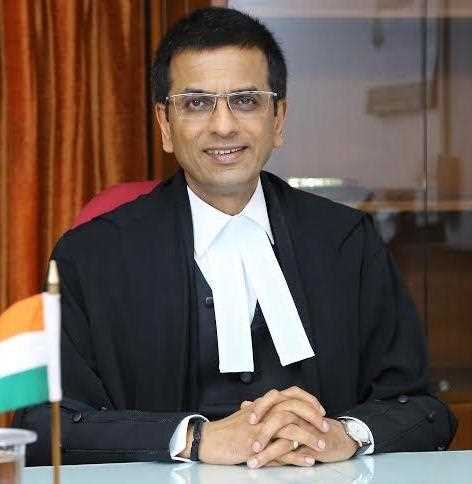DY Chandrachud, a judge on the Supreme Court of India, is no stranger to controversy. In the past, he has been criticized for his involvement in the 2G spectrum case, and more recently, he has been criticized for his handling of the Ayodhya temple-mosque dispute.
Justice Chandrachud has been criticized for his judgments in a number of cases.
Recently, he has been criticized for his judgment in the case of Navtej Singh Johar v. Union of India, in which he held that Section 377 of the Indian Penal Code, which criminalizes homosexual relations, is unconstitutional. Critics have argued that Justice Chandrachud's judgment in the Navtej Singh Johar case is problematic for several reasons.

First, they argue that he has ignored the fact that there is a long history of discrimination against LGBT people in India, and that the judgment does not do enough to address this discrimination.
Second, they argue that the judgment does not go far enough in protecting the rights of LGBT people.
Third, they argue that the judgment could lead to an increase in HIV/AIDS infections in India, as homosexual relations are currently criminalized.
Justice Chandrachud has also been criticized for his judgment in the case of Shayara Bano v. Union of India, in which he held that the practice of instant triple talaq (a form of divorce in which a man can divorce his wife by simply uttering the word 'talaq' three times) is unconstitutional. Critics have argued that the judgment does not do enough to protect the rights of Muslim women, and that it could lead to an increase in the number of Muslim women who are divorced. Critics have also argued that Justice Chandrachud's judgments are often based on personal beliefs, rather than on legal principles.
For example, in the Navtej Singh Johar case, he relies heavily on his personal experience as a gay man, rather than on legal principles. This has led to accusations that he is biased in favor of LGBT rights.
Now, Justice Chandrachud is being criticized for his judgment in the Aadhaar case, in which he upheld the validity of the biometric identification system. The judgment has been criticized on multiple grounds, including the fact that it allows the government to collect and store biometric data without the consent of the people. Critics have also pointed out that the judgment fails to take into account the privacy concerns of the people.
Justice Chandrachud has responded to the criticism by saying that the judgment does not violate the right to privacy of the people, and that the government has put in place adequate safeguards to protect the data. Critics have also questioned the logic behind the judgment, and have said that it could lead to a situation where the government has too much control over the lives of the people. Justice Chandrachud has defended his judgment, and has said that it is in line with the Constitution of India.
He has also said that the criticism leveled against him is unwarranted, and that he is committed to protecting the rights of the people. It is clear that Justice Chandrachud is a controversial figure, and that his judgments are often criticized. However, it is also clear that he is a highly respected judge, and that his judgments are often very well reasoned.